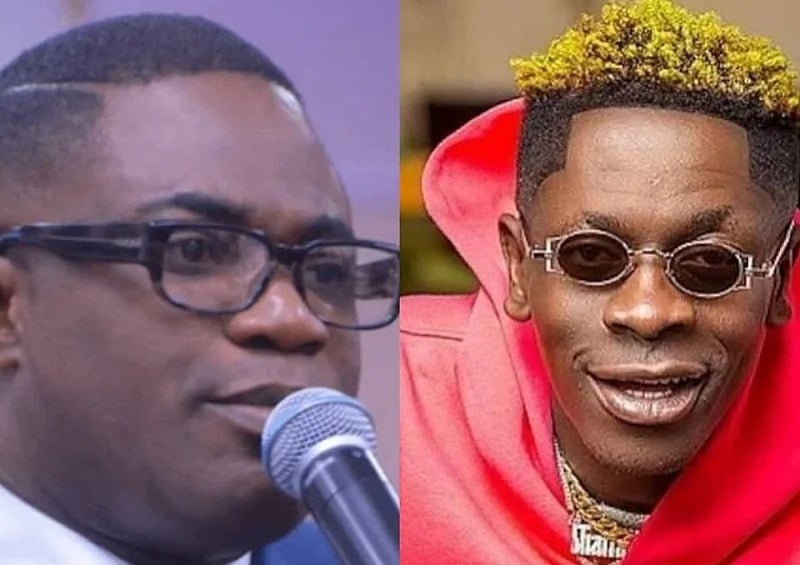US-based Ghanaian Pastor Kofi Adonteng Boateng recently expressed his admiration for renowned reggae-dancehall artist Shatta Wale, born Charles Nii Armah Mensah. In a detailed interview on Kingdom FM, Pastor Adonteng revealed that he is not only a devoted fan of Shatta Wale’s music but also regularly prays for the artist. His appreciation for Shatta Wale goes beyond mere fandom; he acknowledges the complex personal struggles the artist has faced throughout his life. The pastor’s insights shed light on the deeper emotional history of Shatta Wale that informs his artistic persona and public behavior.
Pastor Adonteng particularly highlighted the emotional wounds stemming from Shatta Wale’s difficult childhood, especially the lack of support he received from both parents. In his interviews, Shatta Wale has often mentioned feeling abandoned by his mother and father, which has undoubtedly left a profound impact on his psyche. Pastor Adonteng articulated that these experiences have cultivated a strong, albeit complex, personality in the artist, enabling him to confront life’s myriad challenges alone. He believes that Shatta Wale’s behavior, which can sometimes be seen as controversial or intense, is intricately linked to the unresolved emotional trauma from his early years.
The pastor emphasized that Shatta Wale’s journey has been riddled with significant emotional and spiritual wounds, which play a major role in shaping his demeanor and public persona. According to Pastor Adonteng, this background of struggle and resilience has contributed to a complex character that both fascinates and perplexes his audience. He urged society to approach Shatta Wale’s struggles with compassion rather than scorn, suggesting that the artist’s tumultuous public life is not an indicator of his worth but rather a reflection of his human experiences and challenges.
Pastor Adonteng’s overarching message during the interview was one of empathy and understanding. He highlighted the importance of societal support in healing the emotional scars that Shatta Wale carries from his past. Instead of subjecting him to harsh criticism, the pastor underscored the necessity for love and understanding. This call for compassion is rooted in the belief that everyone, including prominent figures like Shatta Wale, deserves a chance at emotional healing and redemption.
The pastor’s insights resonate within the broader conversation about mental health and emotional well-being, especially in the context of public figures who often live under intense scrutiny. By urging listeners to show empathy, Pastor Adonteng hopes to foster a more supportive community that nurtures rather than condemns those who struggle with their personal battles. His plea is a reminder of the human stories behind the public images we see, emphasizing the essential role of support systems in each individual’s healing journey.
In conclusion, Pastor Kofi Adonteng Boateng’s interview sheds light on the often-overlooked emotional complexities of Shatta Wale’s life and career. By advocating for empathy, understanding, and support, Pastor Adonteng not only champions the artist but also calls for a societal shift in how we perceive those who have faced adversity. His remarks highlight the need for a collective effort to provide healing and support for individuals grappling with their pasts while recognizing the profound impact that childhood experiences can have on personal development and public behavior.














